sx blog
Our digital space for brief commentary and reflection on cultural, political, and intellectual events. We feature supplementary materials that enhance the content of our multiple platforms.
Rest in peace, George Lamming (1927-2022)
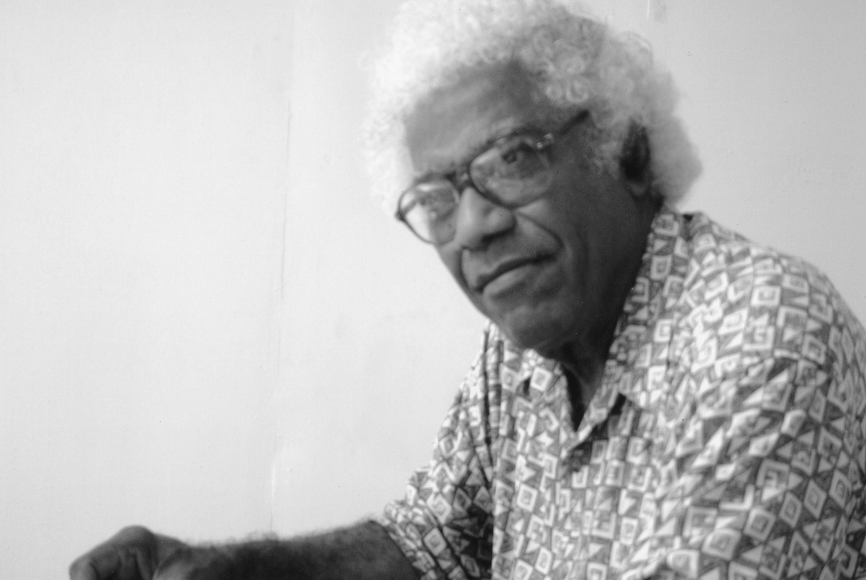
Small Axe joins Barbados, the Caribbean region, and the world in mourning the passing of George Lamming on Saturday 4 June 2022. He was much more than the sum of all his remarkable literary achievements. He was above all a visionary whose work aimed to illuminate the Caribbean future in the present.
Walk good, George.
In honor of George Lamming's legacy, his interview with David Scott for Small Axe will be free until September 2022. Click here to read.
Small Axe 67 is now available!
Small Axe 67 is now available!
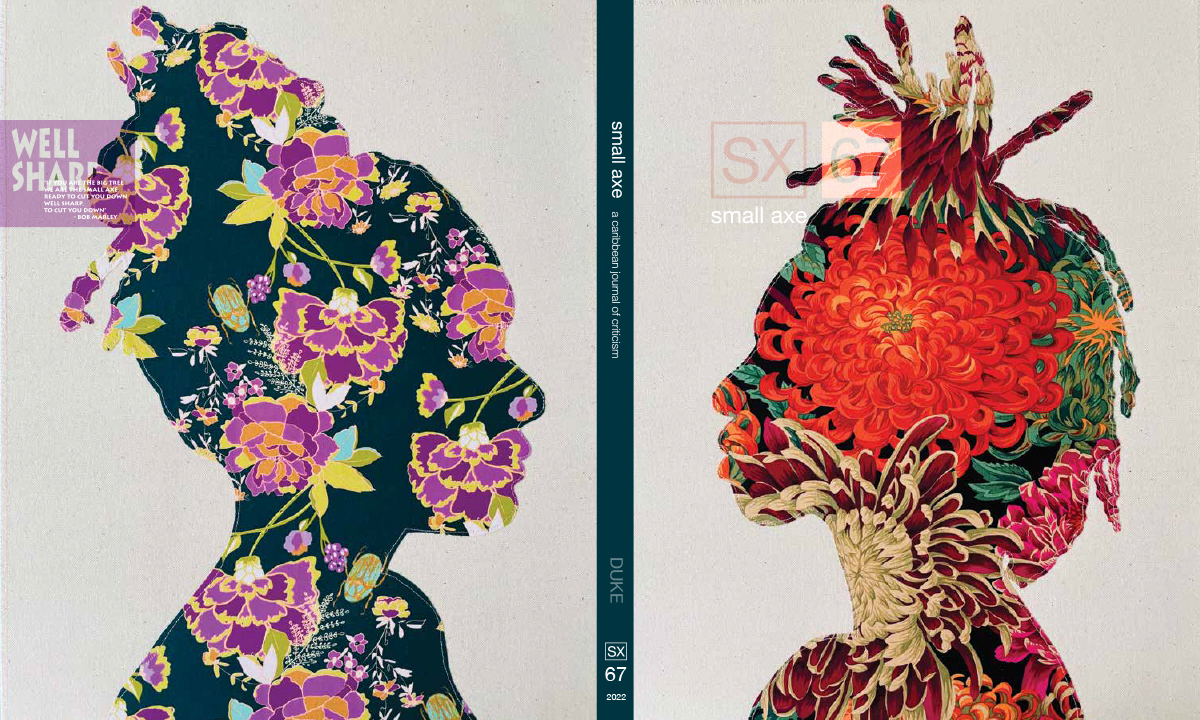
sx67 starts with essays by Warren Harding, Susan C. Méndez, Chelsea Stieber, Kathleen Donegan, Leanna Thomas, and Marta Fernández Campa. Aaron Kamugisha guest-edits our special section "Kamau Brathwaite at Ninety: In Memoriam," which features articles by Kamugisha, Lorna Goodison, Timothy J. Reiss, Gordon Rohlehr, and Elaine Savory. The Bahamian interdisciplinary visual artist, GIo Swaby, provides this issue's visual essay. Lastly, Kevon Rhiney, Patricia Noxolo, and Jovan Scott Lewis analyze and examine Jovan Scott Lewis's Scammer’s Yard: The Crime of Black Repair in Jamaica in our book discussion.
You can browse the new issue's full table of contents at Duke University Press's website, where it is also available for purchase.
New Titles from Editora Educación Emergente (EEE) ~ Archivo rural
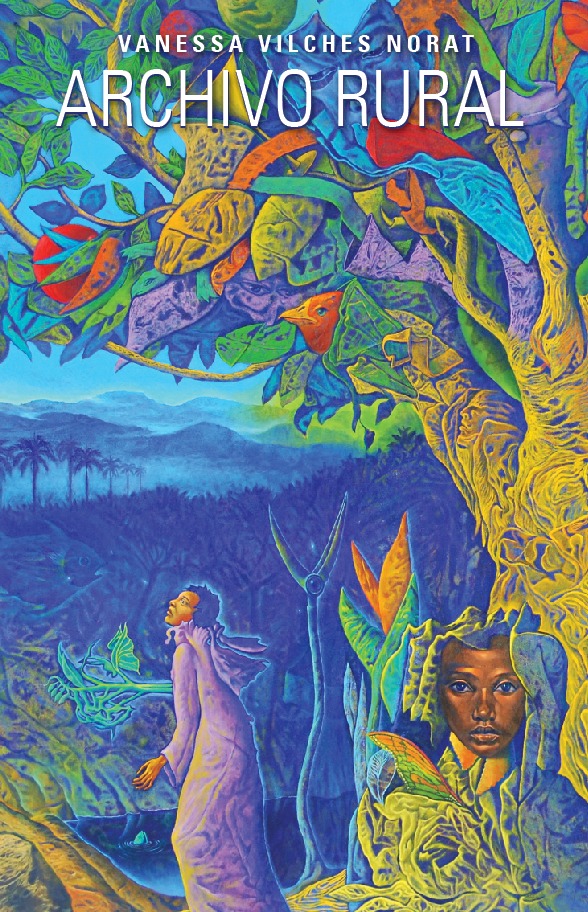
Editora Educación Emergente (EEE), a small-scale independent publisher, established
in 2009 in Cabo Rojo, Puerto Rico, is proud to announce the release of its first three
titles of 2022 to the ample and diverse reading public of the Caribbean.
The most recent addition to the series Edades de Siddhartha is Vanessa Vilches
Norat’s short story collection Archivo rural. According to Marta Aponte Alsina, the
stories collected in this volume constitute “a writing of memories once censored by pain;
the author has dug deep within herself to find the right tone and exact words. Rural life
in the tabaco-producing municipality that was Comerío is allowed to break free from
death and forgetting. In this way, Archivo rural strings the genealogy of the father and
the extended family, with the women-led economy, or the place of women in the
economy, as mothers, tobacco workers, teachers. Breaking with the customary
conceits of nostalgic writing, the death of the father signals instead a total
reconstruction. Vanessa Vilches Norat shows us that it is possible to write like this,
illuminating a world as despised as it is repressed, in which there are still secrets, and
powerful practices.”
To explore our complete catalogue of over seventy titles, please visit:
portal.editoraemergente.com To purchase our books, please visit us online:
editoraemergente.com. Or come to Puerto Rico, where you can find our titles in all local bookstores.
Nuevos títulos de Editora Educación Emergente (EEE)
Editora Educación Emergente (EEE), proyecto editorial independiente de pequeña
escala, fundado en 2009 y con base en Cabo Rojo, Puerto Rico, presenta al amplio y
diverso público caribeño sus primeros tres títulos del año 2022.
Por su parte, la colección de cuentos Archivo rural, de Vanessa Vilches Norat, se
añade a nuestra serie Edades de Siddhartha. En palabras de Marta Aponte Alsina, los
relatos en este libro constituyen “una escritura de la memoria censurada por el dolor; se
ha escarbado piel adentro para dar con el tono y las palabras justas. La vida en la
ruralía del pueblo tabacalero que fue Comerío se desprende de la muerte y el olvido.
Así, Archivo rural hila la genealogía del padre y de la familia extendida, tanto como la
economía de las mujeres, o el lugar de las mujeres en la economía, como madres
reproductoras, tabaqueras, maestras. A diferencia de la escritura nostálgica, la muerte
del padre es la clave inicial de toda una reconstrucción. Se evade el tremendismo; se
trasciende el patetismo. Vanessa Vilches Norat nos demuestra que se puede escribir
así, iluminando un mundo tan despreciado como reprimido, del cual todavía quedan
secretos, e incluso prácticas poderosas.”
Para explorar nuestro catálogo completo, con más de sesenta títulos publicados hasta
la fecha, visita: portal.editoraemergente.com Para adquirir nuestros libros, visita las
librerías locales puertorriqueñas o nuestra tienda en línea en: editoraemergente.com
Nouveaux titres : Editora Educación Emergente / Éditrice
Éducation Émergente (EEE)
Éditrice Éducation Émergente (EEE), projet éditorial indépendant de petite échelle,
fondée en 2009 et localisée à Cabo Rojo, Porto Rico, présente, à l’ample et divers
public caribéen ses trois premiers titres de l’an 2022.
De son côté, la collection de contes Archivo rural / Archive rural, de Vanessa
Vilches Norat, s’ajoute à notre série Edades de Siddhartha / Âges de Siddhârta. Dans
les mots de Marta Aponte Alsina, les récits dans ce livre constituent “une écriture de la
mémoire censurée par la douleur ; elle s’est creusée au plus profond de sa peau pour
donner un ton et les mots justes. La vie dans les zones rurales de Comerío, qui a été le
peuple du tabac, ressort de la mort et de l’oubli. Ainsi, Archive Rural file la généalogie
du père et de la famille étendue, aussi bien que l’économie des femmes, ou le lieu des
femmes dans l’économie, en tant que mères productrices, travailleuses du tabac,
enseignantes. À différence de l’écriture nostalgique, la mort du père est la clé initiale de
toute la reconstruction. L’exagération est éludée ; le pathétisme est transcendé.
Vanessa Vilches Norat nous montre que cette écriture est possible, mettant la lumière
sur un monde si méprisé et refoulé, autour duquel des secrets demeurent, et même des
pratiques puissantes.”
Pour explorer notre catalogue entier, avec plus de soixante titres publiés jusqu’à
présent, visitez : portal.editoraemergente.com Pour acheter nos livres, visitez les
librairies locales portoricaines ou notre magasin en ligne à: editoraemergente.com
New Titles from Editora Educación Emergente (EEE) ~ Poéticas de la devastación y la insurgencia: María y el Verano del 19
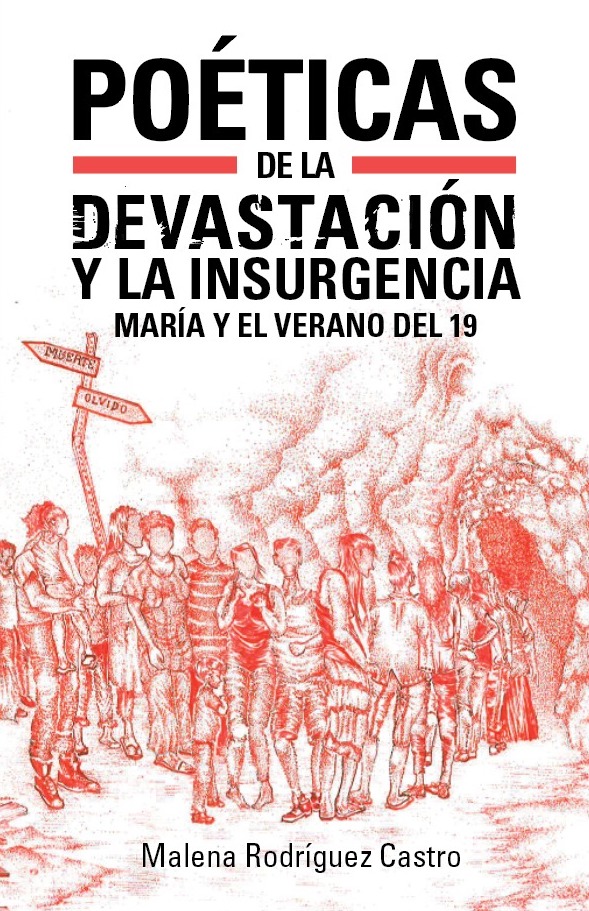
Editora Educación Emergente (EEE), a small-scale independent publisher, established
in 2009 in Cabo Rojo, Puerto Rico, is proud to announce the release of its first three
titles of 2022 to the ample and diverse reading public of the Caribbean.
From the series reVolucionA, comes Poéticas de la devastación y la insurgencia:
María y el Verano del 19 by Malena Rodríguez Castro, who weaves here a critical,
theoretical, and creative tapestry, as she surveys a wealth of interdisciplinary texts. The
poetics at the center of this book document the colonial disgrace—and the disgrace of
the colony—at the same time in which they enunciate, recognize, and celebrate the
latent resistance that will the rescue our life in common. With analytic ingenuity,
Rodríguez Castro vindicates the art of politically committed criticism that denounces and
announces. In these pages another, different, Puerto Rican archipelago comes to view:
insubordinate and beautiful, in full defiance of the many forms of destruction, by way of
its precise creation.
To explore our complete catalogue of over seventy titles, please visit:
portal.editoraemergente.com To purchase our books, please visit us online:
editoraemergente.com. Or come to Puerto Rico, where you can find our titles in all local
bookstores.
Nuevos títulos de Editora Educación Emergente (EEE)
Editora Educación Emergente (EEE), a small-scale independent publisher, established
in 2009 in Cabo Rojo, Puerto Rico, is proud to announce the release of its first three
titles of 2022 to the ample and diverse reading public of the Caribbean.
Mientras, la serie reVolucionA se robustece con Poéticas de la devastación y la
insurgencia: María y el Verano del 19 de Malena Rodríguez Castro, quien teje un
tapiz crítico, teórico y creativo a partir de un recorrido sublime por un conjunto de textos
interdisciplinarios que van de lo impreso a lo virtual. Las poéticas estudiadas por la
autora dan cuenta del infortunio colonial, negligente y destructivo, a la par que
enuncian, reconocen y celebran la resistencia latente, al acecho, que vendrá al rescate
de la vida común. Con ingenio analítico, Rodríguez Castro reivindica en una marejada
huracanada y palabrera la crítica comprometida que denuncia y anuncia. En estas
páginas se avista otro archipiélago puertorriqueño de este tiempo: insubordinado y
bello, que desafía la destrucción con la creación precisa.
Para explorar nuestro catálogo completo, con más de sesenta títulos publicados hasta
la fecha, visita: portal.editoraemergente.com Para adquirir nuestros libros, visita las
librerías locales puertorriqueñas o nuestra tienda en línea en: editoraemergente.com
Nouveaux titres : Editora Educación Emergente / Éditrice Éducation Émergente (EEE)
Editora Educación Emergente (EEE), proyecto editorial independiente de pequeña
escala, fundado en 2009 y con base en Cabo Rojo, Puerto Rico, presenta al amplio y
diverso público caribeño sus primeros tres títulos del año 2022.
Entre temps, la série reVolucionA devient plus forte avec Poéticas de la devastación y
la insurgencia: María y el Verano del 19 / Poétiques de la dévastation et
l’insurrection: Maria et l’ été du 19 de Malena Rodríguez Castro, qui tisse un tapis
critique, héroïque et créatif à partir d’un parcours sublime par un ensemble de textes
interdisciplinaires allant de l’impression au virtuel. Les poétiques étudiées par l’écrivaine
rendent compte du malheur colonial, négligent et destructif, en même temps ces textes
énoncent, reconnaissent et célèbrent la résistance latente, et le harcèlement, qui
viendra à la rescousse de la vie commune. Avec ingénuité analytique, Rodríguez
Castro revendique dans un raz-de-marée d’ouragan et verbiage la critique engagée qui
dénonce et annonce. Dans ces pages s’aperçoit un autre archipel portoricain de nos
temps : insubordonné et beau, qui défie la destruction avec la création précise.
Pour explorer notre catalogue entier, avec plus de soixante titres publiés jusqu’à
présent, visitez : portal.editoraemergente.com Pour acheter nos livres, visitez les
librairies locales portoricaines ou notre magasin en ligne à: editoraemergente.com
Editora Educación Emergente (EEE) ~ Dos Señores muy viejos con alas enormes
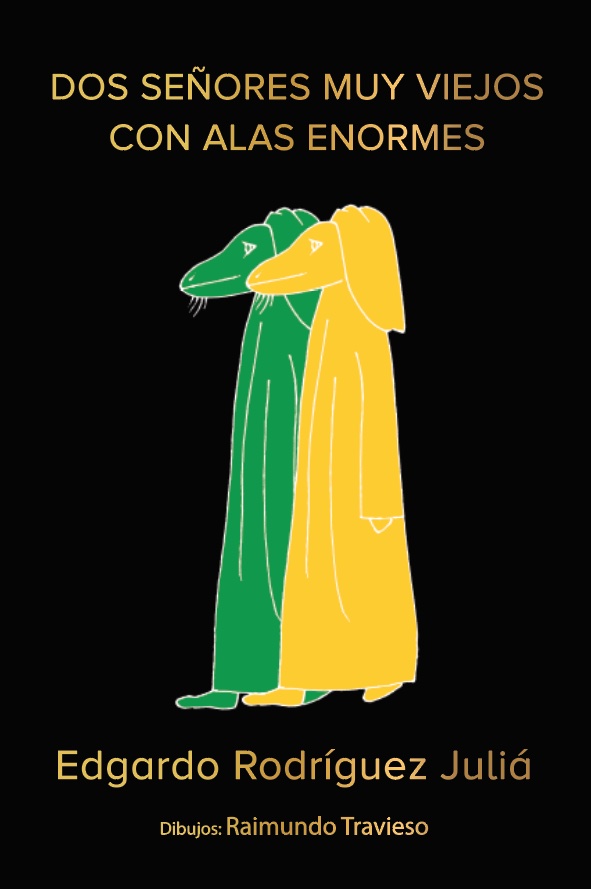
Editora Educación Emergente (EEE), a small-scale independent publisher, established
in 2009 in Cabo Rojo, Puerto Rico, is proud to announce the release of its first three
titles of 2022 to the ample and diverse reading public of the Caribbean.
Part of the Crónica Otra series, Dos Señores muy viejos con alas enormes, by
Edgardo Rodríguez Juliá, with illustrations by Raimundo Travieso, features, in the
words of Christopher Powers Guimond, “a poetic prose mosaic that transforms a
friendship from the author’s far away youth into distinct flashes of light. Author and
illustrator present readers a bevy of rescued memories bathed in a sort of vindicating
nostalgia. It is a work of late life. And, as such, it is austere, fragmented, virtuosic: a
portrait of the then youthful artist, now turned local myth. At the same time, this intimate
chronicle doubles as allegory for the socio-cultural history of both Cuba and Puerto
Rico. Its multifarious references—to writings, places, and happenings—add up, on the
one hand, to a catalogue of the Muñoz years, as remembered by the Puerto Rican
writer, and on the other, as a collection of the many echoes of the revolution in the
Cuban artist.”
To explore our complete catalogue of over seventy titles, please visit:
portal.editoraemergente.com To purchase our books, please visit us online:
editoraemergente.com. Or come to Puerto Rico, where you can find our titles in all local
bookstores.
Nuevos títulos de Editora Educación Emergente (EEE)
Editora Educación Emergente (EEE), proyecto editorial independiente de pequeña
escala, fundado en 2009 y con base en Cabo Rojo, Puerto Rico, presenta al amplio y
diverso público caribeño sus primeros tres títulos del año 2022.
En la serie Crónica otra, aparece Dos señores muy viejos con alas enormes, de
Edgardo Rodríguez Juliá y con dibujos de Raimundo Travieso. Según señala
Christopher Powers Guimond, este libro “convierte en prosa poética los momentos de
una amistad de la lejana juventud como destellos de luz refractadas y compuestos en
mosaico. Presenta remembranzas rescatadas en un contrapunteo de imagen y texto,
cuyo tono es de una nostalgia reivindicada, triste pero más con añoranza que con
melancolía. Sería como una obra de estilo tardío, austera, fragmentada y virtuosa: un
retrato del artista en su juventud, ahora convertido en mito. A la misma vez esta crónica
íntima sirve de alegoría para el rumbo social y cultural de Puerto Rico y Cuba, ‘de un
pájaro las dos alas.’ Sus referencias a los textos, los espacios y acontecimientos
suman un catálogo de la época muñocista visto por el escritor puertorriqueño y de los
ecos de la Revolución en su amigo, el artista cubano.”
Para explorar nuestro catálogo completo, con más de sesenta títulos publicados hasta
la fecha, visita: portal.editoraemergente.com Para adquirir nuestros libros, visita las
librerías locales puertorriqueñas o nuestra tienda en línea en: editoraemergente.com
Nouveaux titres : Editora Educación Emergente / Éditrice
Éducation Émergente (EEE)
Éditrice Éducation Émergente (EEE), projet éditorial indépendant de petite échelle,
fondée en 2009 et localisée à Cabo Rojo, Porto Rico, présente, à l’ample et divers
public caribéen ses trois premiers titres de l’an 2022.
Dans la série Crónica otra (Une autre chronique), apparaît Dos señores muy viejos
con alas enormes / Deux messieurs très âgés aux ailes géantes, d’Edgardo
Rodríguez Juliá avec des dessins de Raimundo Travieso. D’après Christopher
Powers Guimond, ce livre “rend en prose poétique les moments d’une amitié de la
lointaine jeunesse, avec des étincelles de lumière réfractées et composées en
mosaïque. Il présente des souvenirs récupérés dans un contrepoint d’image et de texte,
dont le ton nostalgique revendiqué, triste, mais il s’agit plutôt du regret que de la
mélancolie. Ce serait comme une œuvre de style tardif, austère, fragmentée et
vertueuse : un portrait de l’artiste dans sa jeunesse, maintenant devenu mythe. En
même temps, cette chronique intime sert d’allégorie pour la direction social et culturelle
de Porto Rico et de Cuba, ‘d’un oiseau les deux ailes.’ Ses références aux textes, aux
espaces et aux évènements, ajoutent un catalogue de l’époque muñoziste vue par
l’écrivain portoricain et les échos de la Révolution de son ami, l’artiste cubain.”
Pour explorer notre catalogue entier, avec plus de soixante titres publiés jusqu’à
présent, visitez : portal.editoraemergente.com Pour acheter nos livres, visitez les
librairies locales portoricaines ou notre magasin en ligne à: editoraemergente.com
sx66 is now live and available!
sx66 is now live and available!
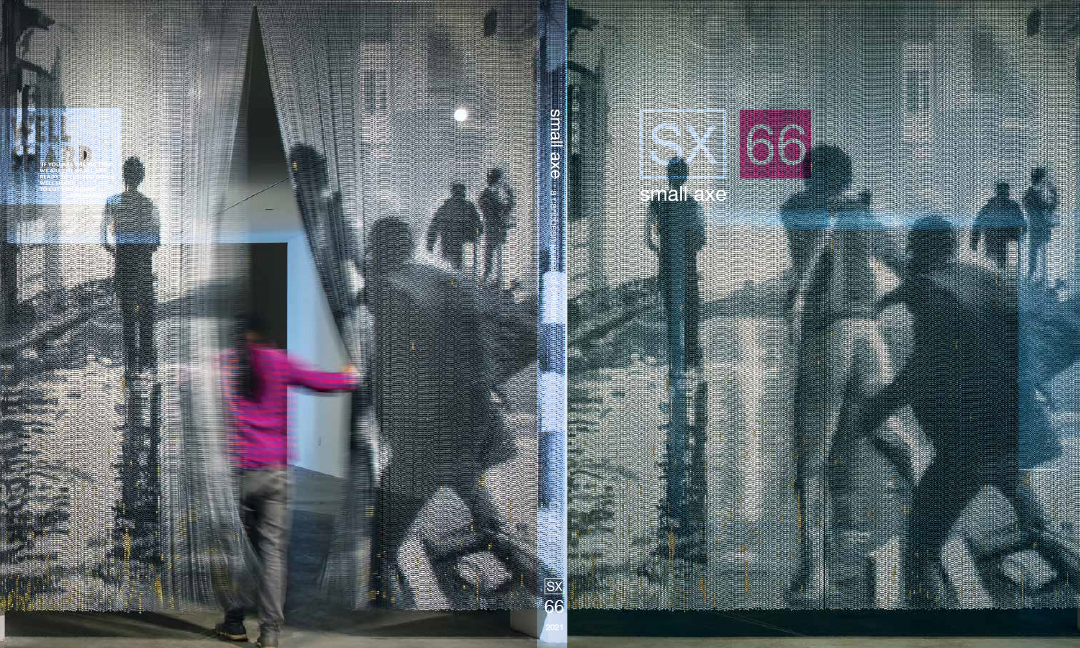
sx66 opens with essays by Jennifer Baez, Ines P. Rivera Prosdocimi, Éric Morales-Franceschini, and Guillermina De Ferrari. Kelly Baker Josephs guest-edits our special section "Revisiting Kamau Brathwaite's Poetics of Caribbean Studies," which features essays by Josephs, Rinaldo Walcott, Nadi Edwards, Paul Joseph López Oro. Cosmo Whyte provides this issue's visual essay, "Here... but Disappeared." In the section Translating the Caribbean, Kahlila Chaar-Pérez translates "Ramón Emeterio Betances' speech at the Masonic Lodge in Port-au-Prince." Rivke Jaffe, Nadège T. Clitandre and Jhon Picard Byron close the issue by examining Greg Beckett's There is No More Haiti: Between Life and Death in Port-au-Prince in our book discussion.
Book Launch: The Fire That Time: Black Transnational Radicalism and the Sir George Williams Occupation
Book Launch: The Fire That Time: Black Transnational Radicalism and the Sir George Williams Occupation
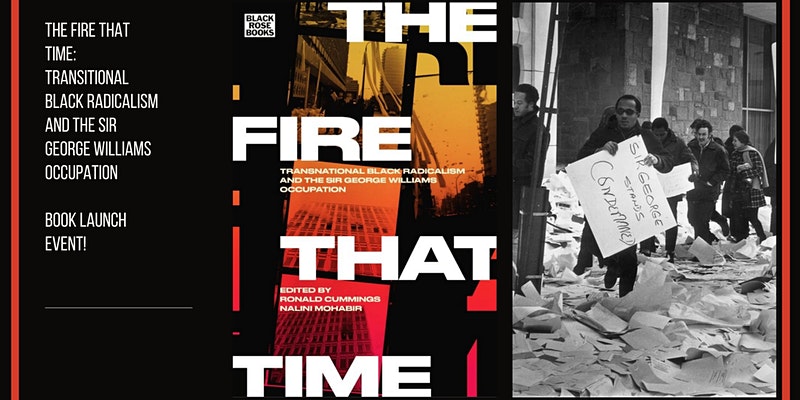
Date: Friday, January 14th 2022
Time: 6:00 PM – 8:00 PM EST
sx salon's book review editor Ronald Cummings and sx contributor Nalini Mohabir will launch the new anthology that they edited, The Fire That Time: Black Transnational Radicalism and the Sir George Williams Occupation, with an event on Friday January 14th. The nonfiction book situates the 1969 West Indian students' protest at Sir George Williams University (now Concordia University), transnationally, as part of a network of West Indian student protests against racism, across Canada, the US, the UK, and the Caribbean.
The importance of this story to Montreal’s black community, and across the diaspora, is discussed by various authors, some of whom were there in person, and others who return to this moment to understand the implications of ongoing anti-Black racism.
Register for the book launch event here.
Congratulations to the People of Barbados
The Small Axe Project salutes the people of Barbados on the important political step it has taken (30 November 2021), removing the queen as head of state, and assuming the identity of a republic. There is much more to be done. We hope that other anglophone Caribbean nation-states will follow suit. And we hope that this is but the beginning of a renewed conversation in the region about the relation between the colonial past and the postcolonial present, between dependence and sovereignty.
David Scott
Race:Gender:Class presents "How Can We Think About the Implications & Local/Trans-national Resonances of Hemispheric Creole Whiteness”

From the University of Johannesburg's Center of the Study of Race, Gender & Class
Date: Wednesday, November 124h
Time: 18:00 SAST / 11:00 EST
Register here.
“How Can We Think About the Implications & Local/Trans-national Resonances of Hemispheric Creole Whiteness”
Global Blackness Summer School ‘21 / Black Articulation Otherwise
Join us as 18:00 SAST (11:00 EST) on Zoom for Session 2 of our Global Blackness Summer School with Donette Francis
In this session, Donette Francis works from the site of contemporary Miami, asking us to consider the implications and local/transnational resonances of what she calls “hemispheric creole whiteness”. Because local histories of place matter to the complexities of racial formation, she uses geography to shift the terms of the current debate around immigration and new racial formations in the United States. She asks: what happens when we centre a space like Miami, where migrations from the Americas fundamentally disrupt US models, transplanting their own hemispheric practices of white supremacy and anti-blackness to restructure operations of place and power?
Our 2021 Global Blackness Summer School is organised around critical ideas and practices of Black Articulation Otherwise, with Donette Francis, Gabrielle Goliath, Pumla Dineo Gqola, Phumi Mtetwa & Tavia Nyong’o. Running from 15 November to 9 December, the programme will include a series of seminars, screenings, listenings, workshops and an exhibition, hosted by an exceptional group of invited thinkers, creative practitioners and activists.
Through this online and hybrid programme, we hope to cultivate a productive space for community, care and imagination. Join us as we seek to collectively refuse the ‘transparency’ of heteropatriarchal whiteness (and its attendant conditions of enclosure, illegibility and death), and look to the otherwise possibilities opened through speculative Black, queer and feminist aesthetic practices.
Aaron Kamugisha to present keynote address at 9th Annual Critical Caribbean Symposium
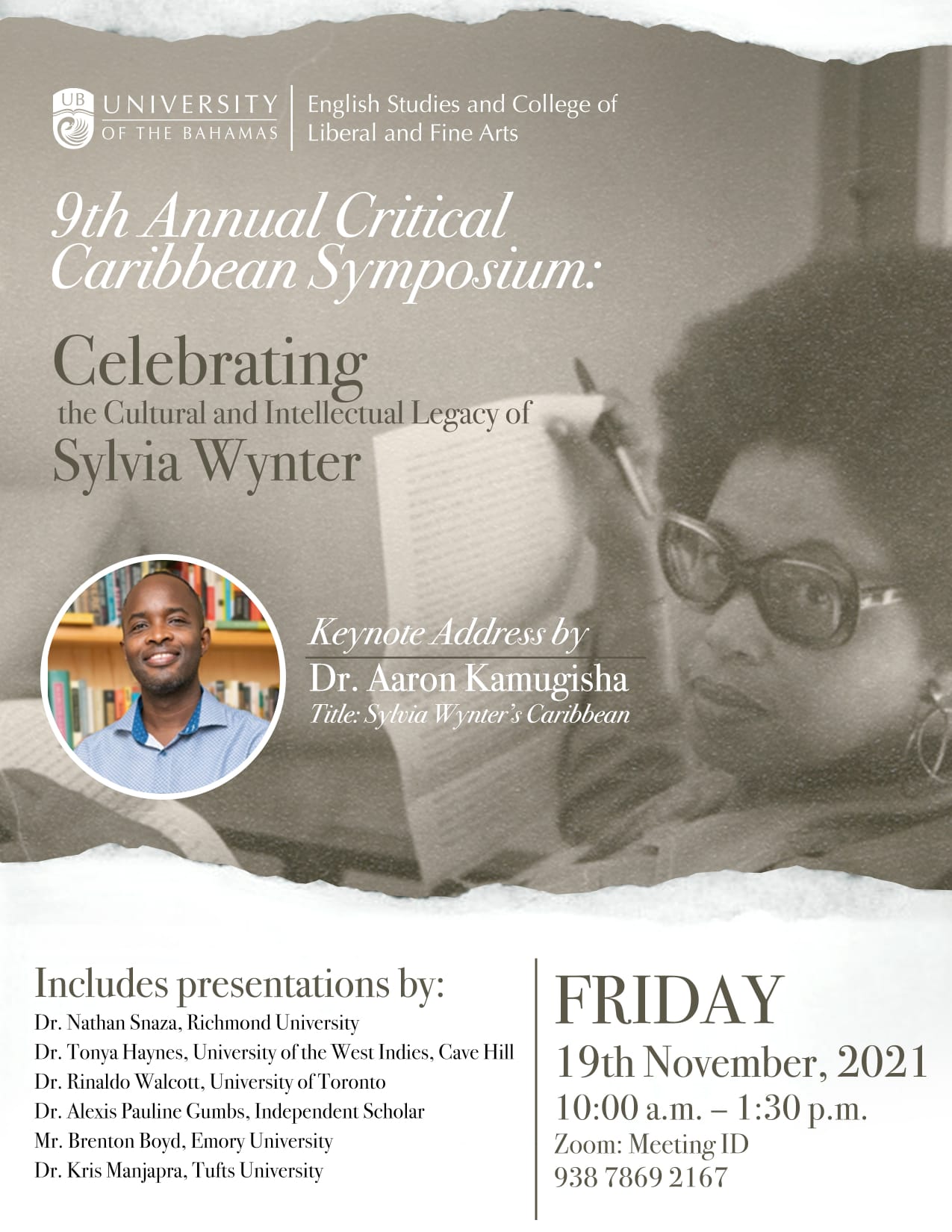
Small Axe editorial committee member Aaron Kamugisha will deliver the keynote address at the University of the Bahama's 9th Annual Critical Caribbean Symposium: Celebrating the Cultural and Intellectual Legacy of Sylvia Wynter.
The symposium will also include presentations by previous Small Axe contributors Rinaldo Walcott (sx57) and Tonya Haynes (sx49).
Date: Friday, November 19th
Time: 10am-1:30pm EDT
Register here